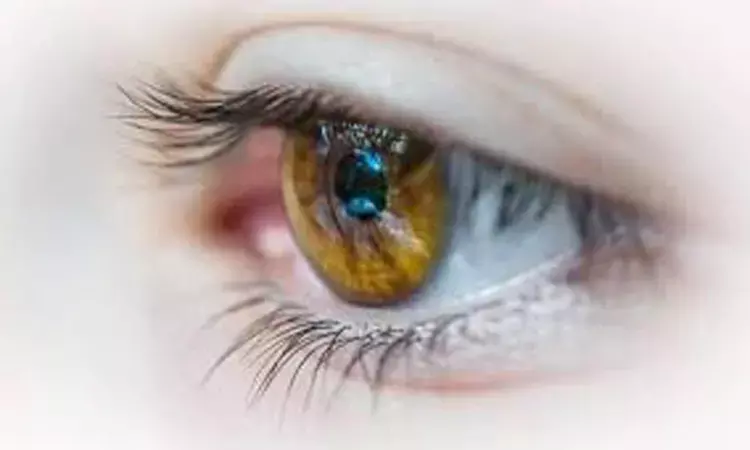- Home
- Medical news & Guidelines
- Anesthesiology
- Cardiology and CTVS
- Critical Care
- Dentistry
- Dermatology
- Diabetes and Endocrinology
- ENT
- Gastroenterology
- Medicine
- Nephrology
- Neurology
- Obstretics-Gynaecology
- Oncology
- Ophthalmology
- Orthopaedics
- Pediatrics-Neonatology
- Psychiatry
- Pulmonology
- Radiology
- Surgery
- Urology
- Laboratory Medicine
- Diet
- Nursing
- Paramedical
- Physiotherapy
- Health news
- Fact Check
- Bone Health Fact Check
- Brain Health Fact Check
- Cancer Related Fact Check
- Child Care Fact Check
- Dental and oral health fact check
- Diabetes and metabolic health fact check
- Diet and Nutrition Fact Check
- Eye and ENT Care Fact Check
- Fitness fact check
- Gut health fact check
- Heart health fact check
- Kidney health fact check
- Medical education fact check
- Men's health fact check
- Respiratory fact check
- Skin and hair care fact check
- Vaccine and Immunization fact check
- Women's health fact check
- AYUSH
- State News
- Andaman and Nicobar Islands
- Andhra Pradesh
- Arunachal Pradesh
- Assam
- Bihar
- Chandigarh
- Chattisgarh
- Dadra and Nagar Haveli
- Daman and Diu
- Delhi
- Goa
- Gujarat
- Haryana
- Himachal Pradesh
- Jammu & Kashmir
- Jharkhand
- Karnataka
- Kerala
- Ladakh
- Lakshadweep
- Madhya Pradesh
- Maharashtra
- Manipur
- Meghalaya
- Mizoram
- Nagaland
- Odisha
- Puducherry
- Punjab
- Rajasthan
- Sikkim
- Tamil Nadu
- Telangana
- Tripura
- Uttar Pradesh
- Uttrakhand
- West Bengal
- Medical Education
- Industry
Blood sugar control does not necessarily prevent vision loss in diabetes

USA: Blood sugar control may not protect diabetes patients from vision loss as earlier believed, a recent study in the journal Investigative Ophthalmology and Visual Science has found. The results, however, do not deny the importance of tight blood sugar control in diabetic avoiding eye complications.
People with diabetes can have diabetic retinopathy when high blood sugar levels over a period of time cause damage to blood vessels in the retina.
The association between glycemic control and visual acuity may not be linear despite the good documentation of diabetes' ophthalmic sequelae. Previous studies have suggested that maintaining an HbA1c <7%. Previous studies have suggested that maintaining HbA1c <7% preserves visual acuity and controlling glycemic index may prevent the progression of diabetic retinopathy. Anjali Om, Emory University School of Medicine, Decatur, Georgia, United States, and colleagues performed a retrospective cohort analysis to determine how glycemic control in patients with proliferative diabetic retinopathy (PDR) or diabetic macular edema (DME) through a teleretina screening program affected the progression of visual acuity at subsequent follow-up appointments.
The researchers reviewed a total of 271 patients with proliferative diabetic retinopathy or diabetic macular edema with visual acuities tracked for each eye (total of 542 eyes).
The cohort consisted of patients in the Grady Healthcare System screened via one of 13 diabetic teleretina screening cameras. For further evaluation, all pathological results were referred to the Grady Eye Clinic (GEC). Patients with PDR or DME were included in the study. Glycemic control was determined by subtracting patients' most recent HbA1C at the time of data collection from HbA1C at the time of presentation. Visual acuity was measured at the first GEC visit and at 1, 3, and 6-month follow-up visits. Change in visual acuity was calculated by subtracting patients' most recent visual acuity (in logMAR) from visual acuity at presentation.
Key findings of the study include:
- 318 visual acuities were documented at the GEC following teleretina screening.
- 135 eyes had no additional follow-up and were therefore excluded from this analysis.
- Of the remaining 183 eyes, 96 were followed for 6 months, 69 for 3 months, and 18 for 1 month.
- Diligent blood sugar control did not prevent declines in visual acuity among patients with diabetic retinopathy or diabetic macular edema.
"Even diligent glycemic control may not protect patients from declining visual acuity," wrote the authors. "Still the importance of tight glycemic control in avoiding diabetic eye complications cannot be denied. Rather, they suggest that there may be external factors that influence patients' progression after follow-up."
"Further research with larger sample sizes should focus on identifying variables with stronger predictive values. Additional efforts could be taken to identify barriers to follow up after initial teleretina screening," they concluded.
The study, "Effect of Glycemic Control on Visual Acuity in a Teleretinal Screening Program," is published in the journal Investigative Ophthalmology and Visual Science.
Dr Kamal Kant Kohli-MBBS, DTCD- a chest specialist with more than 30 years of practice and a flair for writing clinical articles, Dr Kamal Kant Kohli joined Medical Dialogues as a Chief Editor of Medical News. Besides writing articles, as an editor, he proofreads and verifies all the medical content published on Medical Dialogues including those coming from journals, studies,medical conferences,guidelines etc. Email: drkohli@medicaldialogues.in. Contact no. 011-43720751


